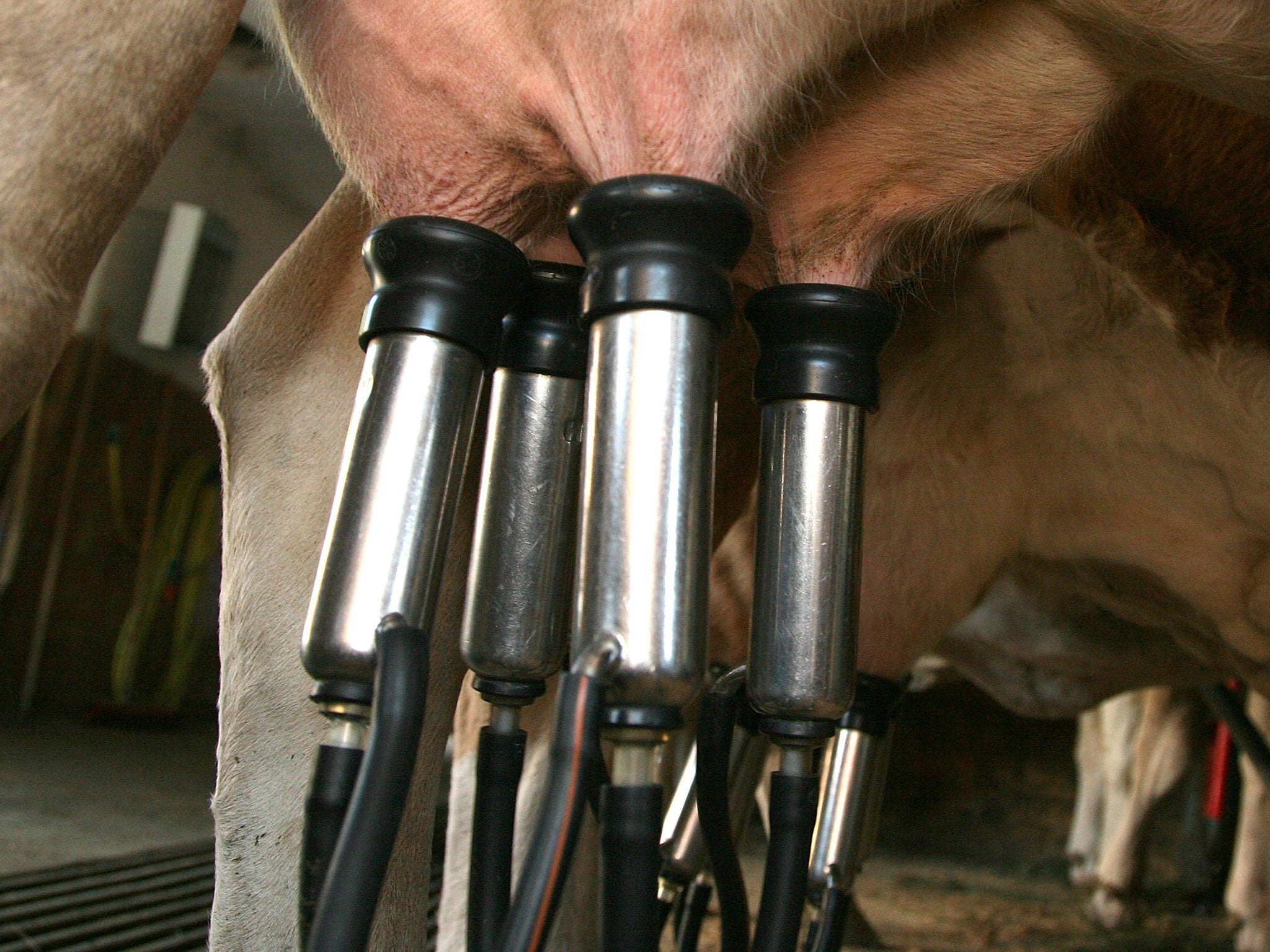Consumers would pay a premium to avoid the cruelty and environmental costs of factory-produced milk
Who can doubt that milk produced by cows that feed on grass is superior to that produced by denizens of mass-confinement units?

Agriculture is in flux. Even the most city-bound of us understand that the reality of modern British farming bears little relationship to its comfortable, old-fashioned image. Intensive farming methods are the norm in pork, poultry and egg production. But, as we report today, industrialisation is now transforming dairy production, too – without public consultation, and with consequences for the animal, the consumer and the countryside that are only vaguely understood. It is increasingly likely that the milk in your coffee came from a cow that will never see daylight or green grass in its life.
It may be argued that the arrival in this country of American-style dairy methods is overdue. Campaigners herding their animals down supermarket aisles have drawn attention to the crisis in the industry caused by the worldwide slump in milk prices, which is putting one British farmer out of business every week. The crisis has several causes: a slump in Chinese demand, a Russian ban on food imports in retaliation for EU sanctions, the end of European quotas, and perfect fodder-growing conditions leading to a glut in supply. Crude Darwinism would dictate that only the dairy farmer willing to take tough decisions deserves to survive the resulting wild fluctuations in price.
But there is good reason to be alarmed about the silent invasion of our countryside, from Cornwall to Lanarkshire and from Llangain to Co Antrim, by the mega-dairies technically known as Concentrated Animal Feeding Operations, or Cafos. The average British dairy farm has 125 cows, but in Britain there are now at least 20 Cafos with herds of 700 or more, in which the cattle are confined year-long in huge sheds. Promoters of the new methods argue that the Cafos improve animal health, thanks to round-the-clock care, while the vast amounts of slurry they produce can be fed into anaerobic digesters, which produce renewable energy. All is for the best, they claim, in the best of all possible Cafos.
There is good reason for scepticism, however. If these huge units are so progressive, why not introduce them openly? But the attempt to establish a mega-dairy for more than 8,000 cows five years ago in Nocton, Lincolnshire, was abandoned after a national outcry and local objections focusing on risks to the water supply. This did not stop the Cafos but drove them underground, with dairy farmers increasing herd size incrementally, in giant facilities hidden from public view. Neighbours discover what is happening only when the stench of slurry from the huge herds becomes all-pervasive, the fields become open sewers, and local roads are clogged with milk tankers and silage trailers.
It should not be possible for dairy farms to undergo such drastic transformations, dramatically increasing their impact on the environment, without consulting local communities, but that is what is happening. At this rate, the dairy farm where cows see the light of day and eat fresh grass for half the year will become no more than a fading memory.
Herding cows down supermarket aisles may raise awareness, but if traditional dairy farming is to survive, more sophisticated measures are required. And here the poultry industry’s development suggests a way forward, already being pioneered by Neil Darwent, of Free Range Dairy. The long outcry over battery chicken farming, with the evident cruelty it involves, eventually led to campaigns to publicise free-range chickens and eggs, for which a significant fraction of consumers is prepared to pay a higher price. Who can doubt that milk produced by cows that feed on grass is superior to that produced by the unfortunate denizens of mass-confinement units? Those farmers courageous enough to stick to the tried, trusted and natural methods need all the encouragement they can get.
Join our commenting forum
Join thought-provoking conversations, follow other Independent readers and see their replies
Comments
Bookmark popover
Removed from bookmarks